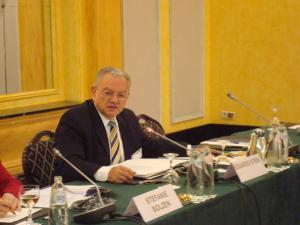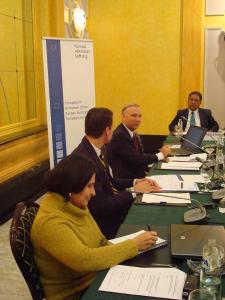Study and information programme
Details
If the global financial and economic crisis affected markets and societies around the world alike, its impacts on Central America can be considered particularly severe. After a significant period of prosperity and social progress, the region now suffers major setbacks in areas such as economic growth, poverty reduction or social stability. Old problems of inequality and institutional weakness still unsolved intermingle with newly created ones like the ever increasing operational strength of organized crime and youth gangs in some countries.
In this context, security and political stability can rightly be considered an indispensable pre-condition for economic recovery and democratic consolidation. However, as recent developments in Honduras and Nicaragua (where elections are scheduled in the course of 2010) clearly indicate, democratic values and a striving parliamentary culture can, on no account, be left out of the equation.
What are the major challenges for Central America? Are they economic or political? How can equilibrium between stability, prosperity and participatory democracy be attained and what might be Central American governments’ next steps? How do think tanks and researchers in those countries assess the near and long-term prospects of the region? Last, not least, what roles can regional integration efforts effectively play in this context?






